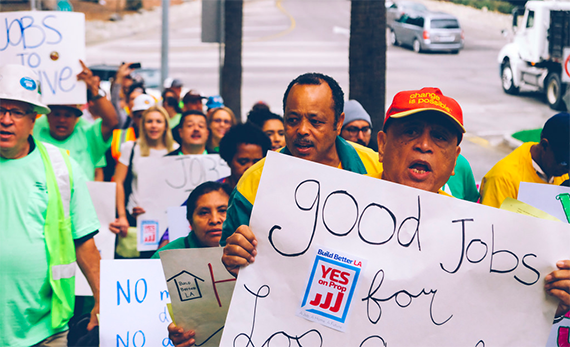Updated, Monday, September 18th, 2017, 5:10 p.m.: As state lawmakers mull over a housing bill package this week, a new report highlights just how important their votes could be to Los Angeles.
Development activity in L.A. is expected to decline over the next two years, according to Los Angeles Department of Building and Safety projections cited in the Los Angeles Business Council study “Housing Pays: Capturing the Economic and Fiscal Benefits of Increased Housing Production in L.A.”
If the projects in L.A.’s pipeline don’t get through before the next downturn — which is expected between now and 2021 — they will be forced to wait until the next development cycle as the area’s housing crisis worsens, said UCLA Anderson School of Management professor Paul Habibi, who authored the report.
To speed up the process, Habibi recommends decreasing processing times for development proposals by 25 percent, expanding expedited processing to include projects that require new Environmental Impact Reports and raising the city’s site plan review requirement above its current threshold of 50 units. The study also suggests the city set aside a fixed portion of funds from new housing to be reinvested in the Affordable Housing Trust Fund.
If Mayor Eric Garcetti’s 2021 goal of building 100,000 new units is not met, the city could lose up to $583 million from new taxes and fees, the report shows. The city is on track to meet the 100,000-unit goal, but would need major reforms to reach its 15,000-affordable-unit goal.
The much-contested passage of Measure JJJ (Build Better LA) has already slowed the pace of development projects by creating more regulation, according to the report. Measure JJJ, which passed with 64 percent of the vote in November, forces developers seeking zoning exemptions to pay their workers union-approved rates and set aside up to 40 percent of units for low-income households.
Democratic lawmakers are in the midst of voting on an extensive housing bill package, including the controversial SB-2 and SB-3. The bills have yet to meet the two-thirds vote necessary to make it to Gov. Jerry Brown’s desk. They have until Friday to make the cut before the legislative session ends.
The most controversial of the package – Sen. Toni Atkins’ SB-2 – proposes a $75 to $225 document fee on real estate transactions.
Correction: An earlier version of this story said the study was conducted by UCLA. It was conducted by the Los Angeles Business Council.
